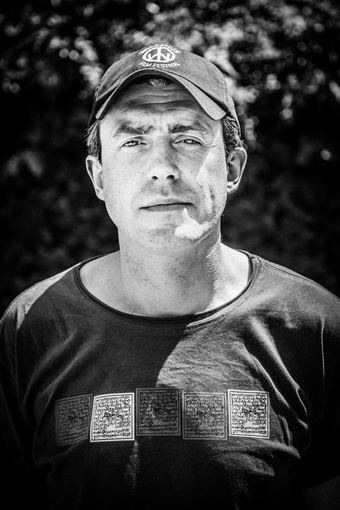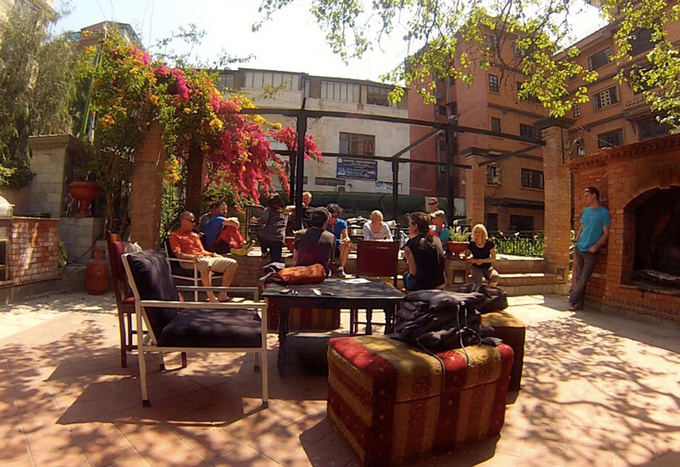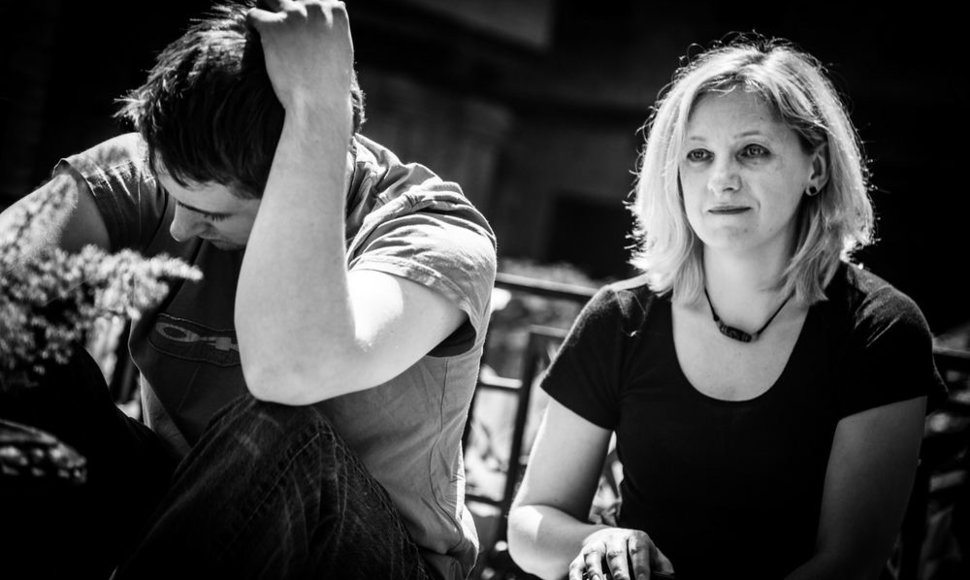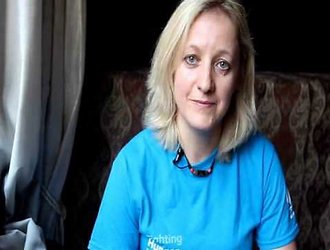 |
| Bertos Tilmantaitės/15min.lt nuotr./Philas Crampton |
As Edita tells 15min, expedition leader Crampton informed the team, whom he met on Friday, that they will be able to move on towards Tibet no sooner than on Tuesday, 9 April.
"Everyone [is] eager to start but we will have a couple of days to relax, but that is not a bad thing. Many of us came from busy lives and some just back from extreme adventures. As an example, Ole [Mose Nielsen from Denmark], my climbing mate from Mt. Manaslu, just finished doing 7 marathons in 7 different continents, including swimming across the Gibraltar Straight and biking in Bolivia over 1,000 km," Edita shares.
Crampton, too, admits that his Everest team equal to the task.
"Many of the group are 8,000-meter veterans and one of the members has already reached the summit of Everest from the south side [the current expedition will climb Everest from the north, - 15min]. Many have climbed on Manaslu and other peaks such as Ama Dablam before. We have a real nice relaxed team and again I think we are in for an enjoyable two months ahead of us," Cramptonas shares his impressions. He himself has made it to the top Mount Everest several times before.
On his blog, he has elaborated more on the reasons why the team is forced to rest for a few days before heading towards Tibet.
"We were hoping to cross the border a few days earlier [on Saturday, - 15min] but the CTMA have informed us that the extra trucks and extra jeeps we have requested are not scheduled to arrive at the border until the 9th. The slight delay actually works in our favor as we still have one member's bag missing from the flight to Kathmandu," the expedition leader informs.
 |
| Editos Nichols nuotr./Team meeting in Katmandu |
"Wonderful experience"
The team's first meeting was attended by Berta Tilmantaitė, another Lithuanian traveler, documentary filmmaker, and reporter for 15min. She has interviewed Edita for her documentary and you can view the video below.
Addressing his team, Crampton told them to ignore negative talks that sometimes come from people who are simply jealous.
"Everest is a wonderful experience. Forget what people say about it. There's a lot of negative reporting – that's the people who cannot afford it, don't have the time to do it. Any climber who has a chance to come to Everest, will come to Everest... Last year, there were six people who didn't have resilience to say, I can't make it down. They are still up there. So be smart. Climbing is meant to be fun," Crampton encouraged his team.
Meanwhile Edita tells that some team members have a slight cold. "It is probably good to catch it now and recover rather than catching while we are travelling. Once we recover, it will mean that we will build up immunity so it will not get us again," Edita says.
International team
Edita, who is the only Lithuanian woman having conquered 8-kilometre peaks twice, is part of an international ten-member team led by Crampton. Under his leadership, the Lithuanian already climbed Mount Manaslu (8,156 metres) last year.
“I chose the team because of the leader's experience. I like his style. We climb as an independent team of mountaineers. He is able to secure excellent service in the base camp, assemble a great team of Sherpa helpers,” Edita has said before.
Edita's team, consisting of climbers from Australia, Denmark, the US, Spain, and the UK, includes three women.
Climb dedicated to poor African region
Edita dedicates her ambitious quest to a campaign called “Everest for Sahel 2013”. She says she wants to draw attention to a serious food crisis that affects millions of families in the region and also collect some funds to help.
“When I was working in Niger, the media initially paid much attention to the food crisis. But later the interest abated. And people there are suffering not just famine. An armed conflict is currently raging in Mali,” she says.
You can support Edita's Everest quest. To learn more about how you can contribute, press here.
To support Edita directly, press here.
Sahel is a zone in west Africa stretching across eight states. The food crises was triggered by crop failure in 2011 due to adverse natural conditions. As stocks went down, food prices spiraled up. Many families cannot afford it and risk starving to death.
Edita saw suffering people with her own eyes and resolved to try and help them – she thought she could draw attention to their problems and maybe even collect some money for relief. She says her life changed after seeing suffering people.
“To finance the Everest trip, I spend my own hard-earned money and borrowed funds. I finance all my expeditions myself. This trip, too, is entirely covered by my personal funds and those of my sponsors [this time, though, sponsors cover only 3 percent of the trip, - 15min]. Meanwhile all the money donated or collected during the expedition, and intended for the people of Sahel, does not go to my own account but rather to one of the World Food Programme,” Edita points out.
You can support Edita's Everest quest. To learn more about how you can contribute, press here.
To support Edita directly, press here.





























